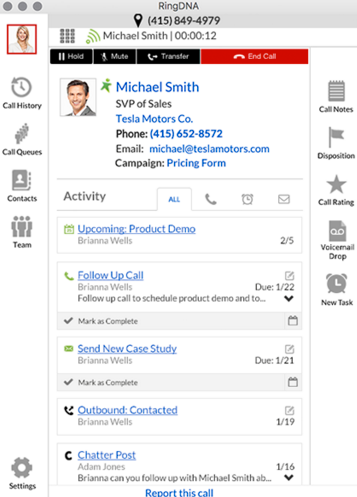7 Questions Sales Ops Managers Must Ask Before Adding New Sales Tools
Great sales operations managers are always on the lookout for new ways to enable reps to sell better. According to TOPO HQ, high growth teams are leveraging an average of five technologies in their sales stack. However, before adding a new tool, it’s important to make sure it will play well with your other applications.
Here are seven vital questions that you should ask vendors during your due diligence process.
Question: What CRM was the solution originally designed for?
Why it’s important: Knowing what CRM a tool was designed for can help you identify integration red flags. For example, if you want to add a tool for Salesforce, but originally it was designed for another CRM (or not designed to work with CRM at all) then it could mean that the Salesforce integration is bolted-on and clunky.
Poorly integrated third-party sales software can end up disrupting your business. Poorly integrated tools can:
- Disrupt your team’s workflow during lengthy onboarding processes
- Create a burden for IT and Salesforce administrator
- Clutter your Salesforce org with superfluous custom fields
- Greatly increase API usage levels across the organization
Question: Will implementation require custom work from IT or a Salesforce administrator? If so, how much?
Why it’s important: Customization work from Salesforce admins or IT can be pricey! Before implementing new tools make sure you know what will be involved in terms of customization.
Question: Do any customers report experiencing slower Salesforce performance when using the product?
Why it’s important: The last thing you want a sales acceleration tool to do is slow Salesforce down.
Question: What is the relationship between the product and Salesforce activities, campaigns and tasks?
Why it’s important: Activities, campaigns and tasks form the lifeblood of many sales teams. Therefore it’s important to know how a solution can impact these objects. For example, if a tool can automatically update tasks or log data against activities, it can indicate that the product has a deeper integration with Salesforce (which is almost always a good thing!)
Question: How much will the user interface disrupt my sales team’s current workflow?
Why it’s important: A tool’s UI should be intuitive, and sales reps should love it. It should make working in Salesforce easier rather than complicating workflow.
Question: Does the solution store data in Salesforce or in a separate closed system?
Why it’s important: If you’ve already invested in Salesforce, it is probably already your primary system of record for sales data. Having to store sales data in a separate, closed system can introduce complexities. But if a solution stores data directly in Salesforce it integrates well enough to allow data syncing. The best solutions sync data with Salesforce in real time.
Question: Can the tool integrate with data from external sources, such as marketing automation?
Why it’s important: The best sales acceleration tools can capture marketing automation data in Salesforce fields and then use this data to help influence workflow. As an example, if a lead prioritization tool integrates with Marketo, it could prioritize sales leads based on a lead score.

